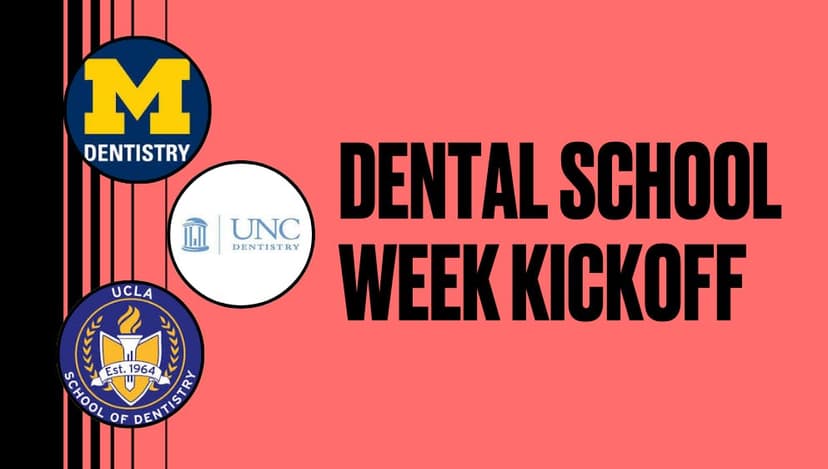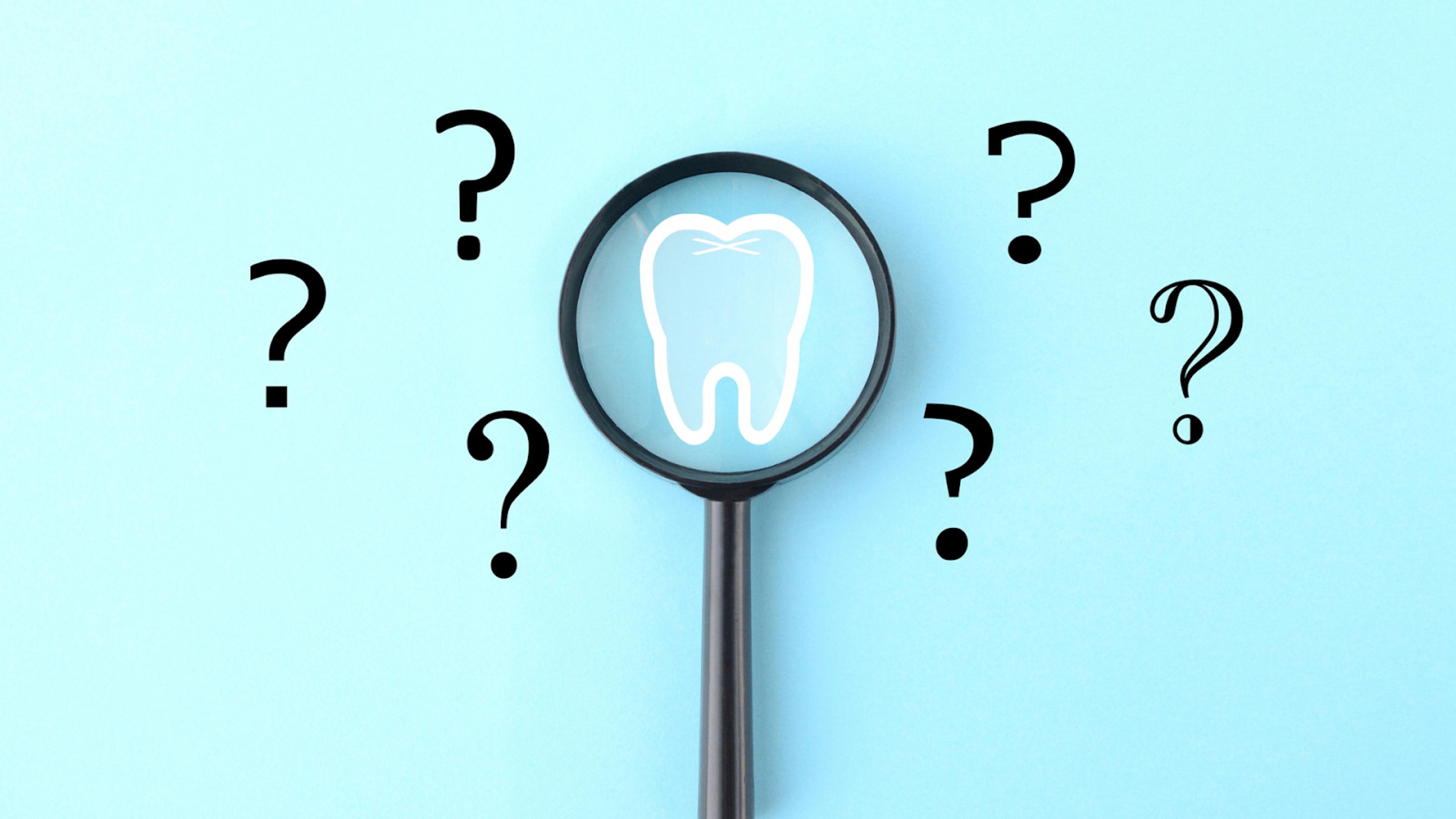The 12 ADA-Recognized Dental Specialties
Explore the diverse world of dental specialties recognized by the American Dental Association (ADA).
Posted June 13, 2025

Join a free event
Learn from top coaches and industry experts in live, interactive sessions you can join for free.
Table of Contents
When it comes to dental care, there are many different specialties within the field. The American Dental Association (ADA) recognizes 12 specific dental specialties, each with its unique focus and expertise. Understanding these specialties is essential for patients seeking the highest level of dental care and for individuals considering a career in the dental profession.
The Importance of Dental Specialties
General dentistry is focused on maintaining oral health and treating common dental issues. However, there are cases where specialized knowledge and skills are required to address complex dental problems. This is where dental specialties play a crucial role.
The Role of Dental Specialists
Dental specialists are dentists who have completed advanced education and training in a specific area of dentistry. They possess in-depth knowledge and expertise in their particular field, allowing them to provide specialized care and treatment to patients with specific dental needs.
These specialists undergo rigorous training beyond dental school, dedicating several years to mastering their chosen specialty. This additional education equips them with the necessary skills to handle complex cases that go beyond the scope of general dentistry.
By focusing on a narrower scope of dental practice, specialists can stay up-to-date with the latest advancements and techniques in their area of expertise. They attend specialized conferences, engage in research, and collaborate with other specialists to constantly improve their knowledge and skills. This specialized knowledge enables them to diagnose and treat complex dental conditions more effectively than a general practitioner.
How Specialties Enhance Dental Care
The presence of dental specialties enhances the overall quality of dental care available to patients. It ensures that individuals can receive the most appropriate and specialized treatment for their unique dental needs.
For example, a patient with severe gum disease would benefit greatly from the expertise of a periodontist. These specialists are skilled in diagnosing and treating various gum conditions, including gingivitis and periodontitis. By focusing solely on gum health, periodontists can provide targeted treatments, improving the patient's oral health outcomes.
Similarly, individuals requiring orthodontic treatment can seek the expertise of an orthodontist. Orthodontists specialize in correcting misaligned teeth and jaw irregularities, ensuring their patients achieve straighter smiles and improved bite function.
Another important dental specialty is endodontics, which deals with the diagnosis and treatment of dental pulp and root canal-related issues. Endodontists are highly skilled in performing root canal treatments, saving teeth that would otherwise need extraction. Their expertise in managing complex root canal cases ensures optimal outcomes for patients.
Oral and maxillofacial surgeons specialize in surgical procedures involving the mouth, jaw, and face. They are trained to perform complex surgeries such as wisdom tooth extraction, dental implant placement, and corrective jaw surgery. Their advanced knowledge and skills make them essential in cases requiring oral and facial reconstruction.
Furthermore, pediatric dentists specialize in providing dental care to children, ensuring their unique needs are met. They have extensive knowledge in child psychology, behavior management, and preventive care. Pediatric dentists create a comfortable and child-friendly environment, making dental visits less intimidating for young patients.
Lastly, prosthodontists specialize in the restoration and replacement of missing teeth. They are experts in creating and fitting dental prostheses such as dentures, bridges, and dental implants. Prosthodontists work closely with patients to design personalized treatment plans, restoring both the function and aesthetics of their smiles.
In conclusion, dental specialties play a vital role in enhancing dental care. These specialists bring advanced knowledge, skills, and expertise to their respective fields, allowing them to provide specialized treatment for complex dental conditions. By seeking the services of dental specialists, patients can receive the most appropriate and effective care tailored to their specific needs.
Overview of the 12 ADA-Recognized Dental Specialties
1. Dental Public Health
Dental public health focuses on preventing and controlling dental diseases on a population level. Specialists in this field work to improve oral health policies and promote community-based preventive programs. They play a vital role in educating the public about proper oral hygiene and organizing initiatives to enhance oral health in underserved populations.
2. Endodontics
Endodontics involves diagnosing and treating diseases of the dental pulp (the innermost part of the tooth). Endodontists perform root canal treatments to save natural teeth that are damaged or infected. They have specialized training in performing these complex procedures and relieving dental pain associated with pulp-related problems.
3. Oral and Maxillofacial Pathology
Oral and maxillofacial pathology focuses on the diagnosis and management of diseases affecting the oral and facial regions. These specialists play an essential role in identifying oral cancer, as well as other oral diseases and disorders. They work closely with other dental professionals to develop appropriate treatment plans for patients.
4. Oral and Maxillofacial Radiology
Oral and maxillofacial radiology involves the use of imaging techniques to diagnose and manage diseases of the oral and maxillofacial areas. These specialists are proficient in interpreting X-rays, CT scans, and other imaging modalities to identify and evaluate conditions such as impacted teeth, tumors, and fractures.
5. Oral and Maxillofacial Surgery
Oral and maxillofacial surgery focuses on treating diseases, injuries, and defects of the mouth, jaw, and face. These specialists perform complex surgical procedures such as wisdom tooth extraction, dental implant placement, corrective jaw surgery, and facial reconstruction. They are skilled in managing both functional and aesthetic aspects of oral and facial structures.
6. Orthodontics and Dentofacial Orthopedics
Orthodontics and dentofacial orthopedics involve correcting misaligned teeth and jaw irregularities to improve dental and facial aesthetics. Orthodontists use braces, aligners, and other devices to straighten teeth and ensure proper bite alignment. By improving dental function and appearance, they contribute to a patient's overall oral health and self-confidence.
Read: The Top 10 Dental Schools for Orthodontics
7. Pediatric Dentistry
Pediatric dentistry specializes in providing dental care to children and adolescents. Pediatric dentists have additional training in managing the oral health of infants, children, and those with special healthcare needs. Their expertise includes preventive care, restorative treatments, and behavioral management techniques specific to young patients.
8. Periodontics
Periodontics focuses on the prevention, diagnosis, and treatment of gum diseases. Periodontists are experts in managing conditions such as gingivitis and periodontitis, which can lead to tooth loss if left untreated. They perform procedures like scaling and root planing, gum grafts, and dental implant placements to restore gum health and preserve the supporting structures of the teeth.
9. Prosthodontics
Prosthodontics involves the restoration and replacement of missing teeth and associated oral structures. Prosthodontists specialize in creating and fitting dental prostheses, including dentures, crowns, bridges, and dental implants. They work closely with patients to customize prosthetics that improve oral function and enhance appearance.
10. Dental Anesthesiology
Dental anesthesiology focuses on providing anesthesia and sedation to manage pain and anxiety during dental procedures. These specialists administer anesthesia safely to ensure the comfort and well-being of patients throughout complex or lengthy treatments. Their expertise allows for pain-free dental experiences for individuals with dental phobia or those requiring extensive dental procedures.
11. Oral Medicine
Oral medicine specializes in the diagnosis and management of oral diseases that manifest as symptoms within the oral cavity. These specialists are trained to identify oral manifestations of systemic conditions, such as autoimmune disorders or nutritional deficiencies. Oral medicine experts collaborate with other healthcare providers to develop comprehensive treatment plans.
12. Orofacial Pain
Orofacial pain specialists diagnose and manage pain associated with the head, face, and neck regions. They have the expertise to identify the causes of chronic orofacial pain, such as temporomandibular joint disorders (TMJ) or facial neuropathies. Orofacial pain specialists employ various treatment modalities, including medication, physical therapy, and behavioral interventions, to alleviate pain and improve quality of life for their patients.
Understanding the 12 ADA-recognized dental specialties empowers patients to make informed decisions regarding their dental care. By seeking the expertise of specialists in the appropriate field, individuals can receive the highest standard of dental treatment tailored to their specific needs. Furthermore, recognizing the significance of these specialties opens up possibilities for those considering a career in dentistry, inspiring them to pursue further education and training to specialize in their areas of interest.
Read these next:
- Doctor of Dental Medicine (DMD) Degree – What It Is & How to Apply
- Doctor of Dental Surgery (DDS) Degree – What It Is & How to Apply
FAQs
What are the 12 dental specialties recognized by the ADA?
- The ADA recognizes 12 specialties, including orthodontics, periodontics, endodontics, pediatric dentistry, and oral surgery, each focused on a specific area of advanced dental care.
When should I see a dental specialist instead of a general dentist?
- You should see a specialist when your dental issue is complex or requires advanced procedures like root canals, implants, gum surgery, or jaw correction.
What does a periodontist do?
- A periodontist treats gum disease and performs procedures like deep cleanings, gum grafts, and implant placements to protect and restore gum health.
How is an endodontist different from a regular dentist?
- An endodontist specializes in diagnosing and treating issues inside the tooth, particularly root canals, using advanced tools and techniques.
Why is pediatric dentistry important for children?
- Pediatric dentists focus on children's oral health, providing specialized care, behavior guidance, and preventive treatments from infancy through adolescence.
Browse hundreds of expert coaches
Leland coaches have helped thousands of people achieve their goals. A dedicated mentor can make all the difference.

















